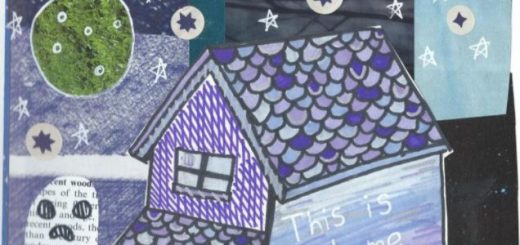devil town by Cavetown Lyrics Meaning – Unraveling the Melancholic Anthem of Alienation
Lyrics
We’re right, no one’s gonna catch us now
Dad has bought a new car now
We’re fine, no one’s gonna catch us now (okay)
You said something dumb again
She’s mad, at least that’s what they say
Mom and daddy aren’t in love
That’s fine, I’ll settle for two birthdays
Devil Town is colder in the summertime
I’ll lose my mind at least another thousand times
Hold my hand tight, we’ll make it another night
I still get a little scared of something new
But I feel a little safer when I’m with you
Falling doesn’t feel so bad when I know you’ve fallen this way too
We’re all dead in Devil Town
That’s fine, ’cause nothing’s gonna scare us now
We’re all in our dressing gowns
Mines white and stripy, yours is green and brown
I forgot my name again
I think that’s something worth remembering
Spiders in your favorite shoes
Just leave them because they’re more scared of you
Devil Town is colder in the summertime
I’ll lose my mind at least another thousand times
Hold my hand tight, we’ll make it another night
I still get a little scared of something new
But I feel a little safer when I’m with you
Falling doesn’t feel so bad when I know you’ve fallen this way too
Devil Town is colder in the summertime
I’ll lose my mind at least another thousand times
Hold my hand tight, we’ll make it another night
I still get a little scared of something new
But I feel a little safer when I’m with you
Falling doesn’t feel so bad when I know you’ve fallen this way too
In the sea of indie music, Cavetown’s ‘devil town’ cuts through the waves with a melancholic yet deceptively upbeat melody that wraps around introspective lyrics. The song functions as a poignant mirror, reflecting the complexities of adolescence, the haunting grip of suburban ennui, and tugs at the universal thread of feeling out of place.
Beneath the seemingly simple surface, ‘devil town’ is a rich tapestry of metaphors, clad in the innocence of a lullaby, addressing themes of identity, the concept of home, and the paradox of intimacy and isolation. It’s a solemn whisper that echoes through the empty cul-de-sacs of the soul.
The Enigma of ‘Devil Town’: What Lies Beneath the Facade
The titular ‘Devil Town’ isn’t merely a backdrop; it’s a character in its own right—a symbol of the place where everything is superficially ‘alright’, yet underneath, brimming with unspoken truths. As the lyrics speak of fitting in (‘we’re right’) and evading something unknown (‘no one’s gonna catch us now’), there’s a tension that pervades, suggesting there might be more to this normalcy than meets the eye.
Cavetown nudges listeners to peel back the layers of this ordinary world, raising questions about the authenticity of our surrounds, and the dissonance between external appearances and internal realities. The devil isn’t in the details, but rather, lurking in the very essence of ‘Devil Town’.
Duality in Domesticity: A Look into Dual Birthdays and Dressing Gowns
The motif of duality runs deep within the song. ‘Mom and daddy aren’t in love / That’s fine, I’ll settle for two birthdays’ speaks to the normalization of broken homes. These lines strike a chord, reflecting how children adapt to their circumstances—in this case, treating the fallout of a fractured family as an opportunity for twice the celebration, masking the underlying emotional toll.
This duality extends to the humble yet significant detail of dressing gowns—one white and stripy, the other green and brown. These items represent the individuality present within ‘Devil Town’, personal identity clinging to survival within homogeneity. There’s a comfort in the familiar, a sonnet of solace in these small acts of living amidst the numbness in ‘Devil Town’.
An Undercurrent of Fear and Comfort: Safety in Togetherness
Throughout ‘devil town’, fear is a silent companion—’I still get a little scared of something new’. Cavetown juxtaposes the novelty with the ancient human craving for companionship, suggesting a significant other’s presence as a bulwark against the uncertainty of the world.
There’s liberation here too, in expressing vulnerability—’Falling doesn’t feel so bad when I know you’ve fallen this way too’, which presents a shared experience as a powerful antidote to fear. The song allows us to lower our guard and grasp onto the idea that perhaps, feeling scared isn’t as daunting when there’s someone there to share the burden.
The Evergreen Metaphor: ‘Devil Town’ and Its Cold Summers
‘Devil Town is colder in the summertime’—a line that flips the script on expected seasonal norms. It’s Cavetown painting the paradox of internal weather, where regardless of the external warmth, there’s an internal chill that can’t be thawed by the sunniest of days.
This metaphor extends beyond mere temperature, hinting at the incongruity between what life in ‘Devil Town’ promises and what it delivers. It’s the lukewarm feeling of getting through yet another day in a place that feels disconnected from the warmth that life is supposed to be brimming with—suggesting that the real coldness lies within the inhabitants themselves.
Decrypting ‘Devil Town’: Unmasking the Hidden Depths
There’s an invisible thread that binds all the elements of ‘devil town’—the song’s heart lies in the unseen, the buried, the depths that we’re all wary to explore. ‘I forgot my name again / I think that’s something worth remembering’ conveys the dissolution of self that can occur in mundane reality, reminding us of the importance of self-awareness amidst the disorienting effect of ‘Devil Town’.
Cavetown doesn’t just describe a place but defines an emotional landscape—one where the inhabitants are ‘all dead in Devil Town’, numb to the scare but alive in their dressing gowns, embodying the paradox of existence. It’s not about giving up; it’s about recognizing and accepting the reality of the place, the circumstances, and the feelings we inhabit.








